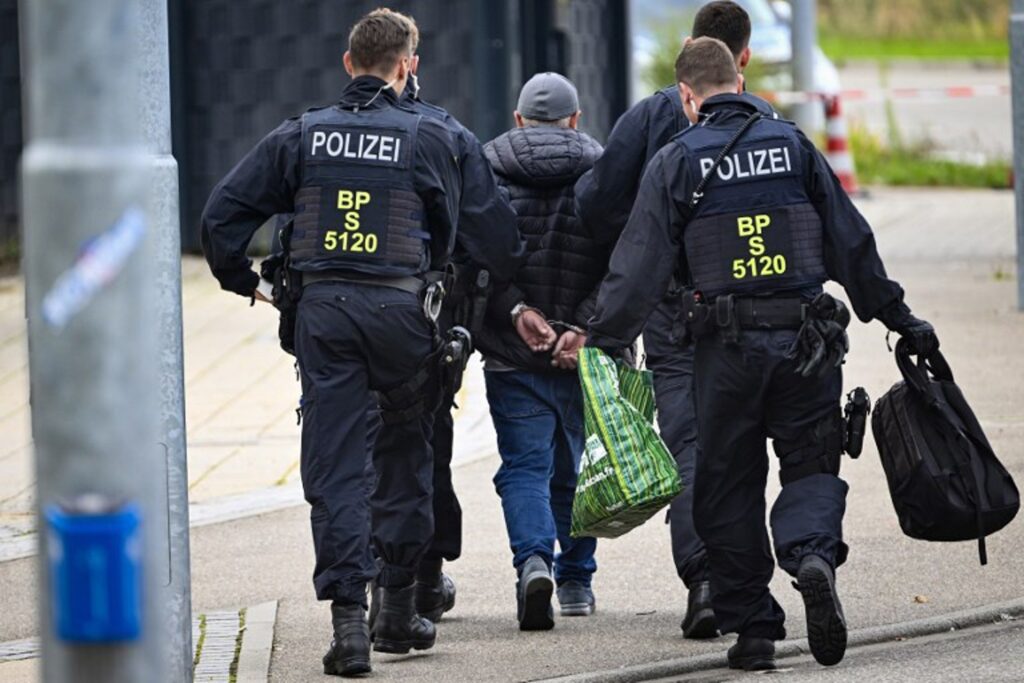Assisting migrants in any way is coming under increased risk of criminal charges, a new report warns.
At least 142 people in Europe were criminalised for helping migrants last year, according to a Platform for International Cooperation on Undocumented Migrants (PICUM) report published on Tuesday.
The figure confirms an upward trend of this practice across the bloc, with at least 117 people criminalised in 2023, 102 in 2022 and 89 between January 2021 and March 2022.
Charges have been brought against individuals who helped migrants in distress at sea (88), provided food, water or clothing to migrants (21), or protested in the name of human rights (17).
These figures, gathered by PICUM media monitoring in EU Member States, are "likely an undercount", the report states. "Many cases go unreported by the media or because people fear retaliation, especially migrants themselves."
Illegal to be a migrant
Criminalisation of EU citizens for such practices often result in acquittal (41 of 43 proceedings in 2024) but "even if a case ends in acquittal, trials still have heavy consequences on people’s finances, personal life and psychological wellbeing."
The increased criminalisation of helping migrants is "deeply tied" to criminalisation of migrants themselves, says Silvia Carta, PICUM Advocacy Officer at PICUM and author of the study. "These are not two separate issues but are in fact a continuum of restrictive migration policies that make border crossing unsafe and create a hostile environment against those who are considered to have entered in an irregular manner."
In Italy, Greece and Spain, at least 91 people were criminalised for crossing borders irregularly between January 2024 and December 2024. This often consists in double punishment, as legal proceedings tend to be harsh and two in three people are imprisoned before going on trial.
PICUM highlights the case of Kurdish-Iranian activist and filmmaker Maysoon Majidi, who spent 300 days in pre-trial detention in Italy because she had distributed water to passengers on a boat.
EU legislation worsens things
The organisation fears that the EU Facilitation Directive, proposed by the European Commission and under discussion at the European Parliament, "leaves the door open to the criminalisation of humanitarian assistance and could expand the grounds for criminalising migrants".
"The proposed Facilitation Directive risks leading to more people being arrested or brought to trial for helping people in need, and to migrants themselves being accused of smuggling," says Carta. "As the negotiations advance, the European Parliament must push for the strongest safeguards so that no one faces prosecution simply because they crossed a border or helped people in need."

